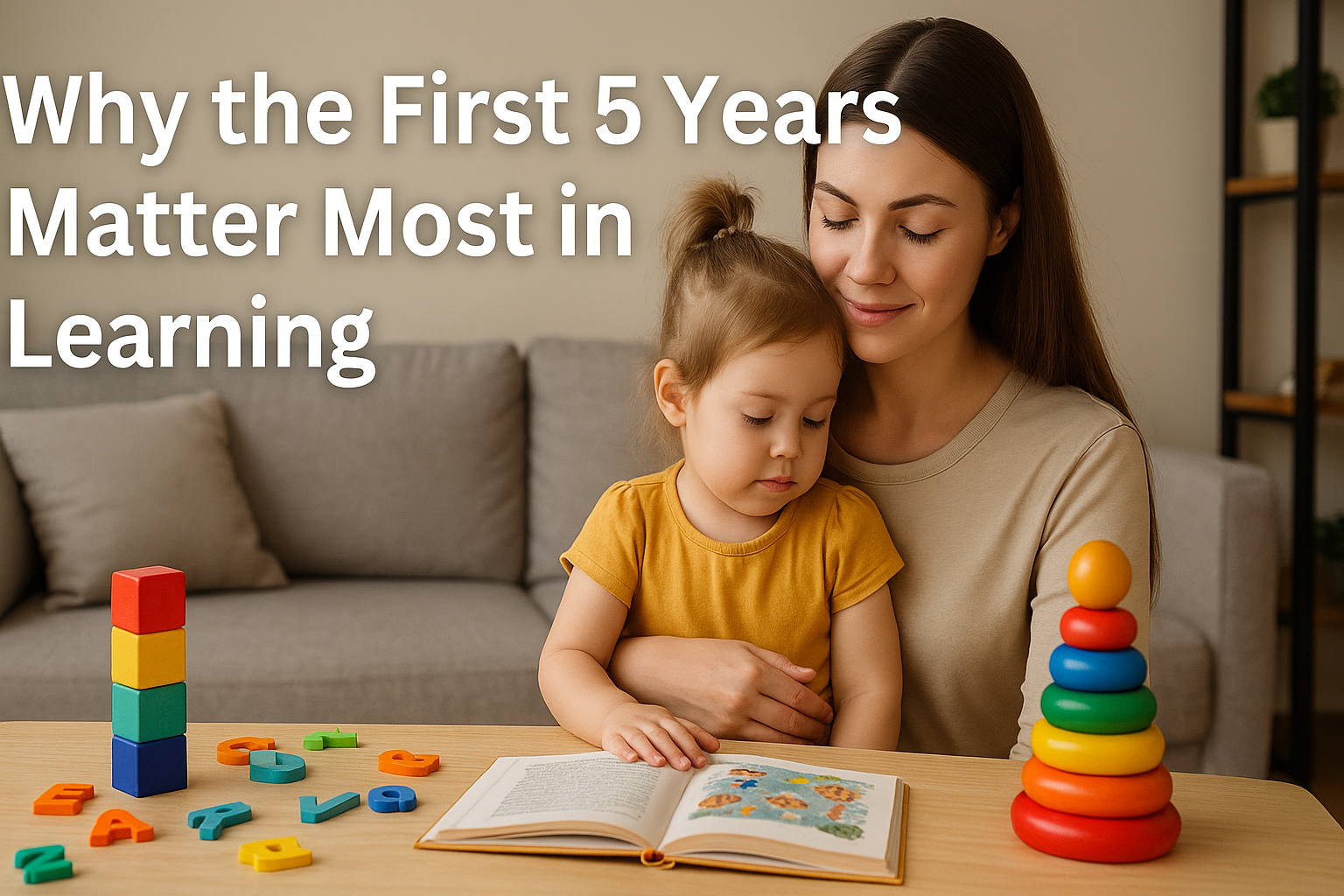The first 5 years of a child’s life are a time of incredible growth—physically, emotionally, and mentally. Research from neuroscience, psychology, and education consistently shows that these early years lay the foundation for all future learning, behavior, and health. Understanding why this period is so critical can empower parents, caregivers, and educators to provide the right support during this essential stage.
1. Brain Development Peaks in the Early Years
By age five, a child’s brain is already 90% developed. During this time, the brain forms over one million new neural connections every second. These connections are influenced by everyday experiences—language, social interactions, sensory play, and emotional bonding. The more positive and stimulating these experiences are, the stronger the brain’s foundation becomes.
If children are exposed to rich language, music, reading, and play from an early age, they develop stronger cognitive skills. Conversely, a lack of stimulation in early childhood can result in long-term learning difficulties.
2. Social and Emotional Foundations Are Formed
In addition to intellectual growth, the first 5 years shape how children understand and regulate their emotions, develop empathy, and form relationships. Children learn these skills by observing and interacting with adults and peers. Secure attachments with caregivers provide emotional safety and help children manage stress, try new things, and build confidence.
Children who feel loved, understood, and safe tend to explore more, learn faster, and develop better communication skills.
3. Language and Communication Skills Bloom Early
Language development begins long before a child speaks their first word. Babies start recognizing sounds, tones, and facial expressions from birth. Talking, reading, and singing to children during the early years significantly enhances vocabulary and literacy skills later in life.
Studies show that children who are read to daily in their early years enter school with a vocabulary thousands of words larger than those who aren’t. This “word gap” has a lasting impact on school performance and reading ability.
4. Early Habits Shape Lifelong Behavior
Routines, habits, and attitudes formed in early childhood often continue into adulthood. Whether it’s a love of books, curiosity, kindness, or resilience—these values are easier to nurture when the brain is most receptive. Early education doesn’t have to be formal; it can be as simple as playing together, answering questions, or encouraging problem-solving during daily activities.
When children learn how to manage frustration, wait their turn, and show empathy, they’re building the emotional intelligence that helps them succeed not just in school, but in life.
5. Parents and Caregivers Play a Vital Role
Parents are a child’s first and most influential teachers. Simple daily actions—talking, cuddling, responding to needs, creating routines—build strong brain pathways and emotional bonds. Preschool teachers and caregivers also play a key role by providing safe, enriching environments where children can thrive.
Supporting early learning doesn’t require expensive toys or advanced techniques. It requires attention, love, consistency, and opportunities to explore the world.
Conclusion
The first 5 years of life are not just important—they are foundational. What children see, hear, feel, and experience in these early years has a lifelong impact on their ability to learn, relate to others, and grow into happy, capable adults. By understanding the importance of these years, we can make conscious choices to nurture every child’s potential from the very beginning.
5 Reasons Every Classroom Needs Quality Worksheets
Why the First 5 Years Matter Most in Learning
The first 5 years of a child’s life are a time of rapid brain development and emotional growth. This period shapes their ability to learn, build relationships, and develop lifelong skills. Parents and caregivers play a vital role through love, play, conversation, and routine. Understanding the importance of early childhood sets the stage for future success.


Facebook Comments